“On a hidden road, you will find a precious gem.”
Would you believe some of the best fortune cookies are made at a little factory in the heart of San Francisco’s Chinatown? But you’re unlikely to find them at your favorite Chinese restaurant—you have to go right to the source.
And, no, we didn’t find this particular fortune cookie message inside a cookie, but we did stumble upon a little jewel of a factory in a historic backstreet alley in San Francisco that manufactures about 2,000 of the cookies each day and has been doing so for almost 60 years.
A small group of workers—we saw just three—at The Golden Gate Fortune Cookie Factory tuck the paper fortunes into cookies formed from small circles of dough pressed flat on antique machines and then folded by hand on metal dowels while they’re still warm and bendable. They have about four seconds to bend the cookies into shape, we were told. Luckily for visitors, some cookies harden too quickly to make the cut and get handed out as samples. They taste just as good as the ones with fortunes inside—maybe even better because they’re still warm, fragrant and oh so crisp!
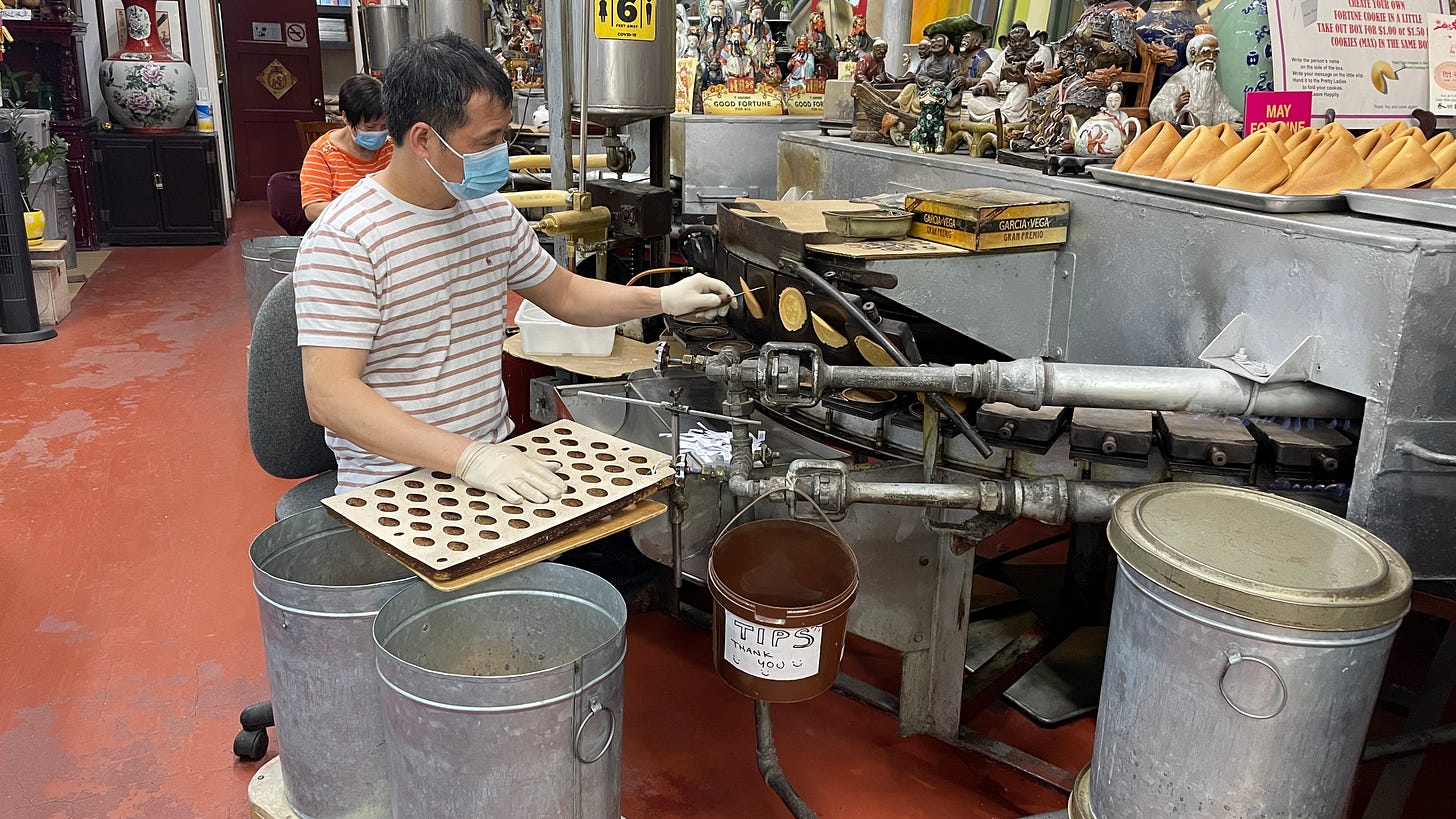
My husband Jeff and I discovered this small, open-door factory while wandering through San Francisco’s Chinatown earlier this month. Surrounded by the Italian North Beach neighborhood, the Financial District and the Nob Hill area, the continent’s oldest Chinese American community is a world apart from its surroundings. Entering after walking through a rather sleepy Fisherman’s Wharf, followed by a busy Italian deli, was like taking a trip back in time.
I remembered trailing my parents through this part of town on long-ago visits to Chinatown. Then, as now, there were open-air markets selling piles of dried fish; fresh and dried fruits, vegetables and nuts; boxes of goods with Chinese characters; shop windows displaying carved jade jewelry—and everywhere people speaking in Chinese (most likely Cantonese, I’m told, not Mandarin).
The fortune cookie factory is located in Ross Alley, a quiet narrow street with a plaque that said it was part of a series of alleys built in the late 1870’s to maximize space for the growing community inside the restricted six-block area where Chinese were then allowed to live.
It evolved in the mid-20th century to become a center for Chinese immigrant garment workers and was home to the famed but now-closed Rickshaw Bar that drew the likes of Frank Sinatra and The Beatles in its heyday. Apparently Ross Alley was also a popular film location. Now, it’s a commercial and residential area and was—until the pandemic—a huge magnet for tourists from all over the world, according to Kevin Chan, owner of Golden Gate Fortune Cookies Co.
“Normally a lot of people come from around the United States and the world,” he said. Right now, they’re not coming. We are disconnected with the world now. No flights.”
But on the day we were there, people were wandering in to get free samples of the hot flat cookies—the ones that weren’t yet wrapped around fortunes. They were delicious and full of flavor. Also on display were cookies dipped in white and dark chocolate, green tea and strawberry-flavored cookies, cookies with sprinkles, and larger cookies for special occasions. You could even write a personal message to be folded into a cookie (as I did to wish my brother Denis a Happy Birthday!).
Kevin Chan said his favorite messages weren’t ancient Chinese sayings, but the marriage proposals that sometimes include a diamond engagement ring, or other messages attached to cash.
Most restaurant fortune cookies are made with just flour, water and sugar, Chan said. “They have no taste at all and no texture. They don’t care about the quality of the cookies. They only care about the messages.”
(Note: I didn’t contact any of the large-scale fortune cookie manufacturers to hear their side of the story. The largest among them, Wonton Food Inc. in Brooklyn, New York, reportedly makes 4.5 million cookies per day!)
Chan’s cookies are made with “real stuff,” he said, “no cheating”—butter, vanilla, sesame seeds and whole eggs, in addition to flour and sugar. The eggs make the cookies yellow in color, unlike some restaurant varieties that are white, he said.
Chan is carrying on a proud family tradition. His mother and uncle founded the company on Aug. 5, 1962, and it will celebrate its 60th anniversary in 2022.
There are various origin stories about fortune cookies, but one thing everyone seems to agree upon is that they were not invented in China. Some suggest that their early incarnations were actually Japanese American, with miso and sesame seed oil among the ingredients and modern versions first served at the Japanese Tea Garden in San Francisco’s Golden Gate Park. But Kevin Chan fiercely defends the cookies’ Chinese American roots.
“It’s an American invention, Chinese owned, Chinese perfected,” he said.
Chan also believes in using traditional Chinese sayings—some 5,000 of them, though there are clearly a few that don’t trace their lineage back so far, such as “An important email will be arriving shortly. Check your inbox.” Each little paper fortune also includes six “lucky numbers” on the back. There are even folks who have won the lottery playing those numbers!
Chan sells mostly to tourists and won’t ship his cookies.
“I don’t want to ship because I want you to come into the community and look at the cookies and look at the community. If I ship everything, then (people) don’t have to (come) here. Then it’s meaningless for the whole community.”
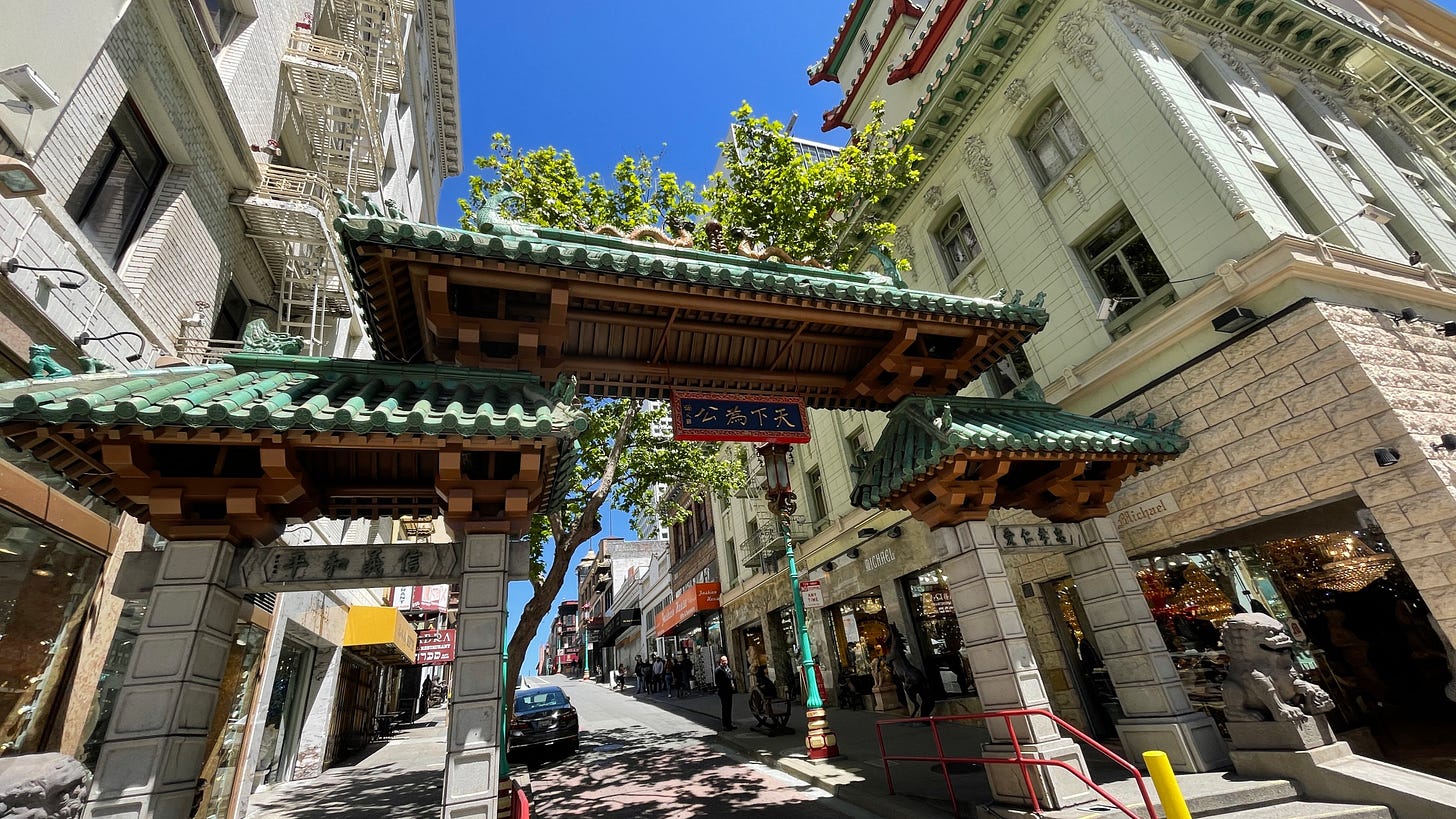
San Francisco’s Chinatown has taken a huge hit during the pandemic—a kind of triple whammy caused not only by the loss of tourism and rising incidents of burglary, but also as the victim of anti-Asian—particularly anti-Chinese—hate crime.
Chan wants people to come to Chinatown not only to buy his cookies, but also to patronize the stores, restaurants and other businesses of his neighbors and friends.
“The Chinatown community is very old, and we need help,” he said.
“What I’m trying to say is, we are Chinese Americans. We are American citizens. We are part of America. We belong here. And America is fueled by immigrants. That’s what makes America so unique. They work together and build a culture, a wonderful culture. Other countries don’t have it. We don’t take a lot, we take a little and give a lot.”
The sign on Kevin Chan’s business card seemed to say it all—perhaps you might even find it inside a fortune cookie:
“Happiness is serving.”
“That’s my goal everyday,” he said.
Hey, thanks for reading the latest edition of Ruth Talks Food. If you enjoyed it, please leave a comment, like it and share it. And do please become a subscriber if you aren’t already. Thanks again!

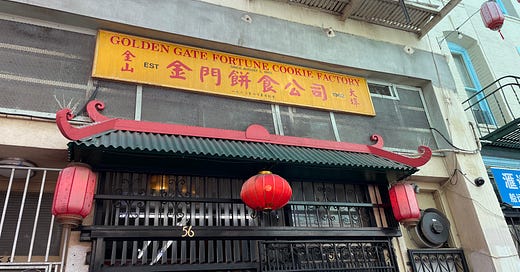


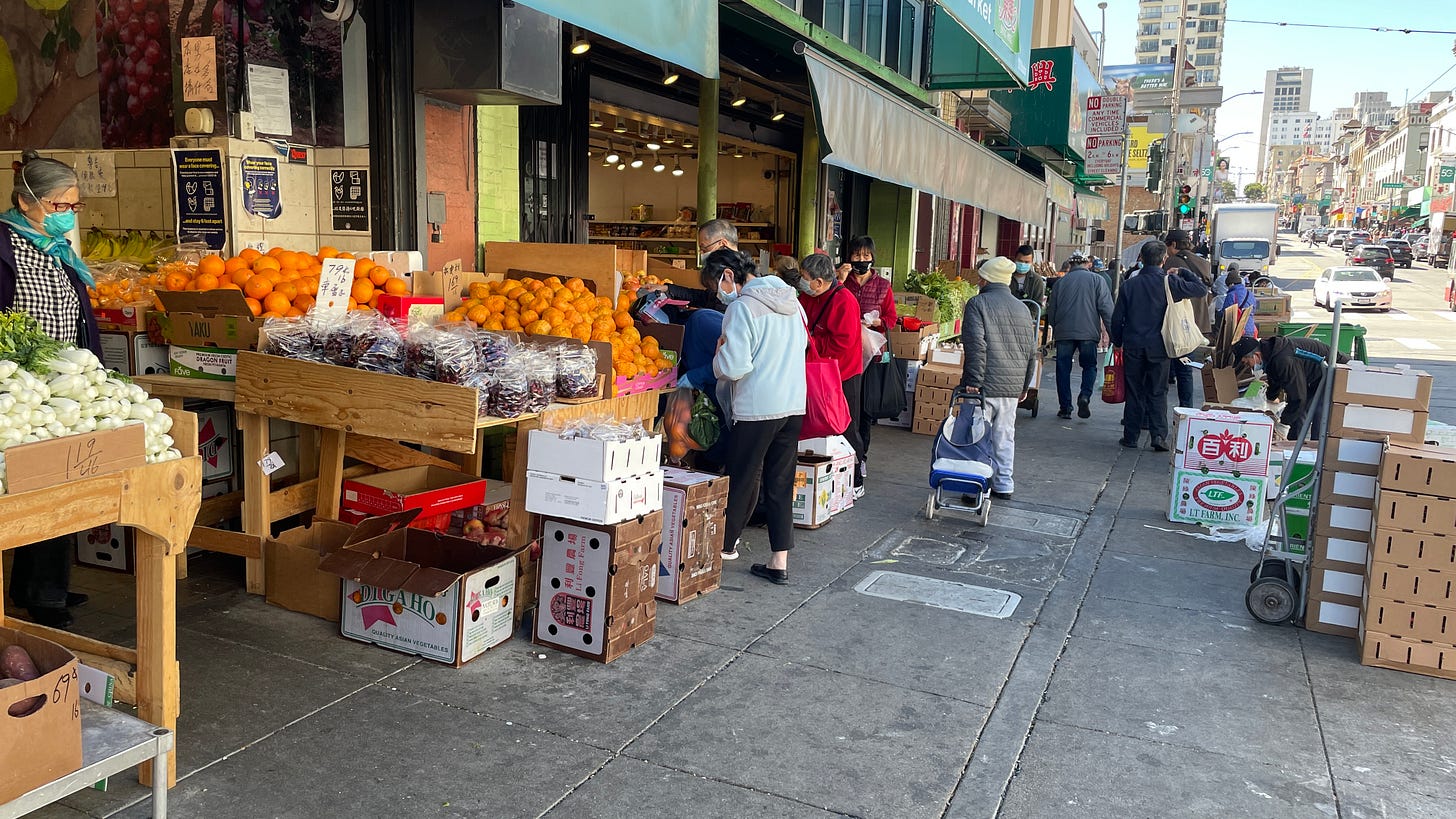
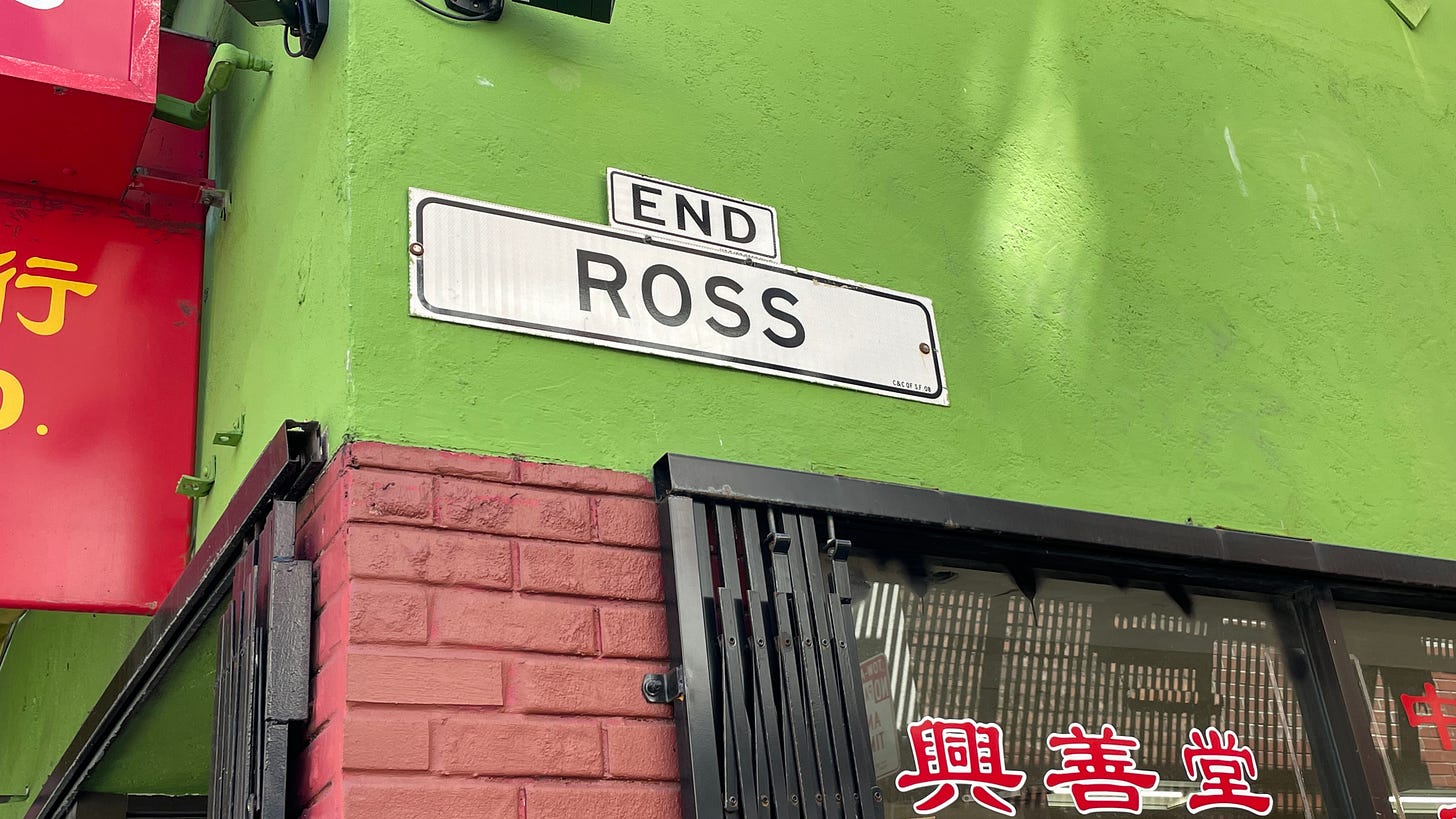
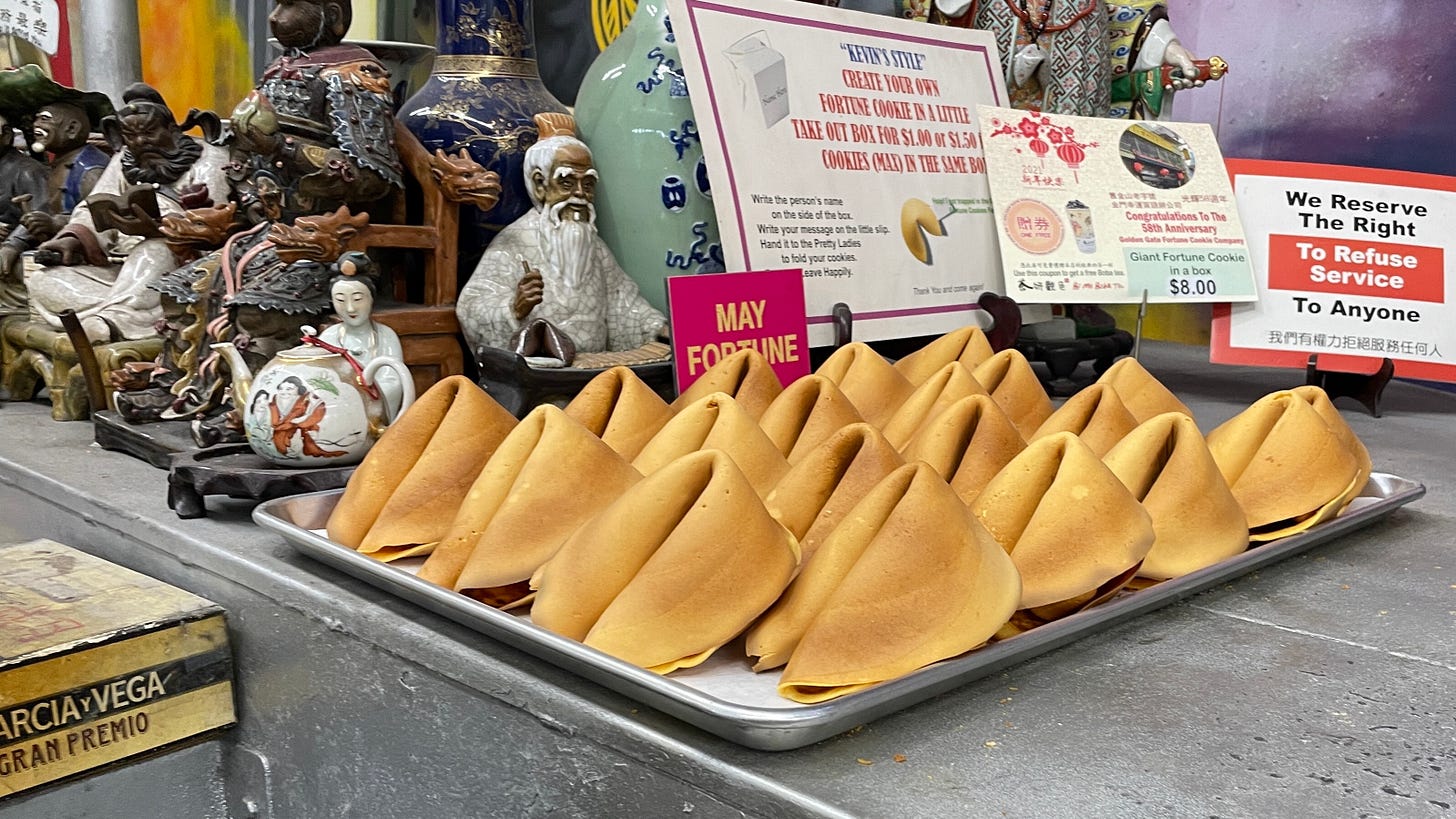
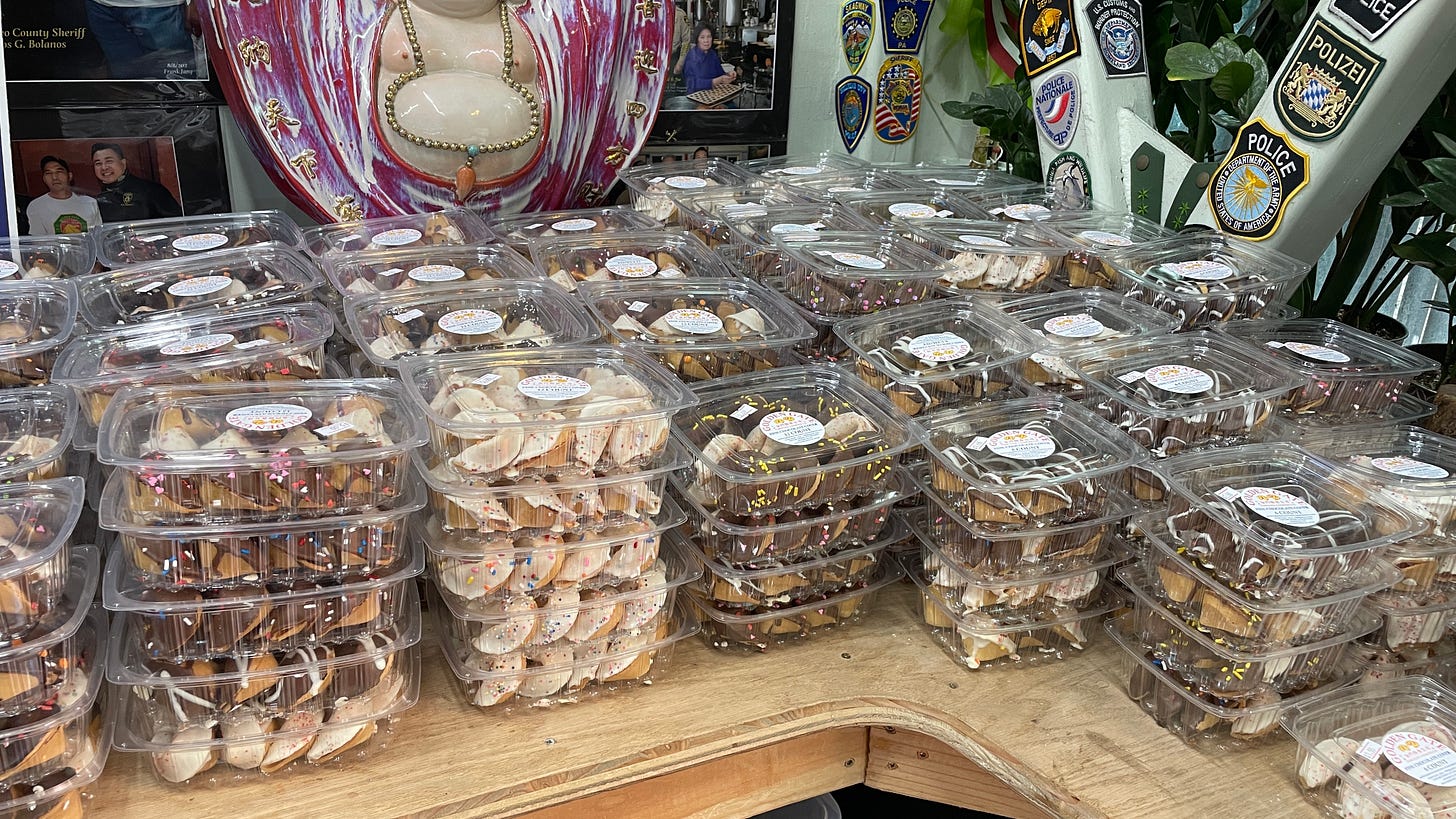
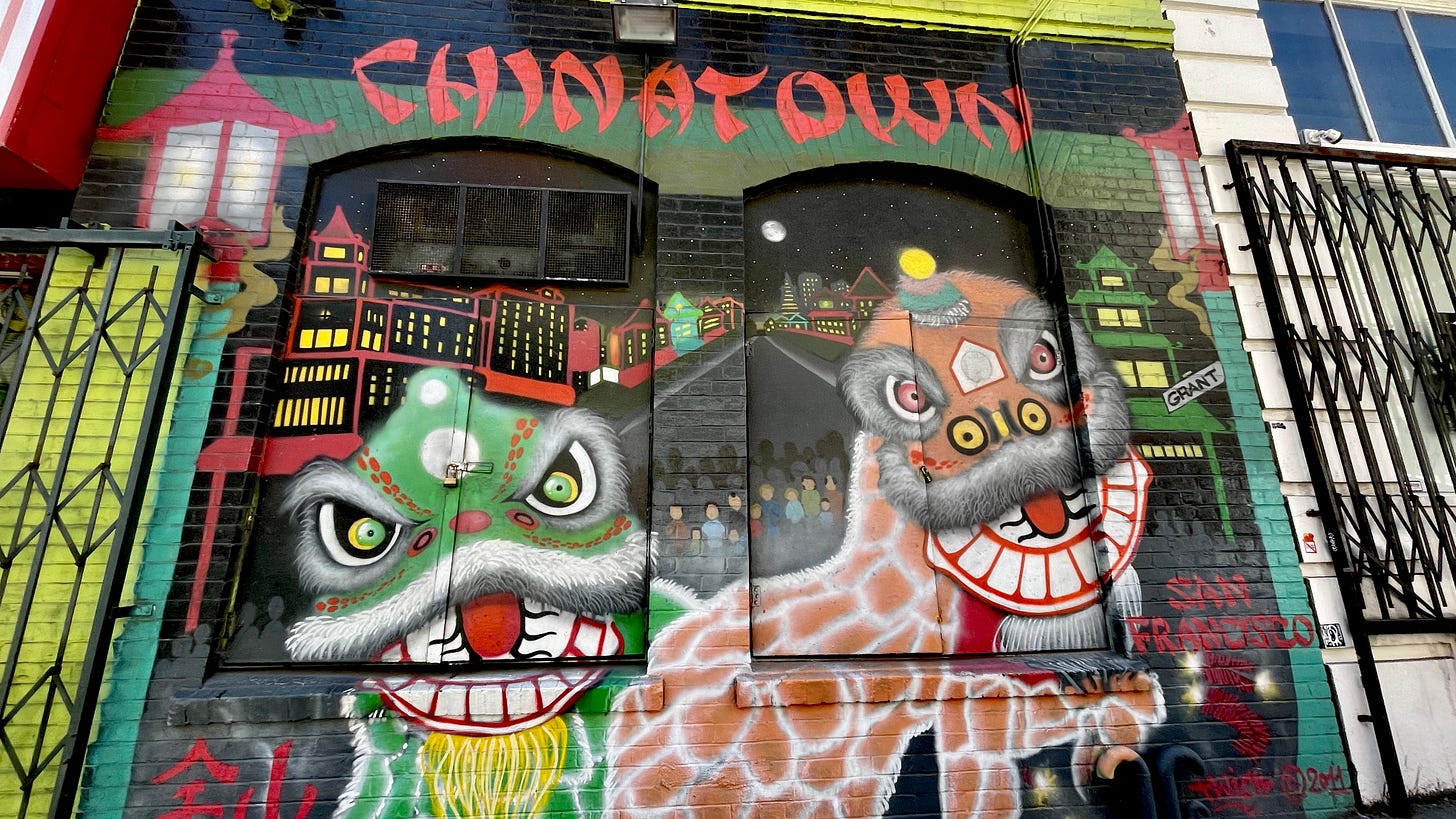
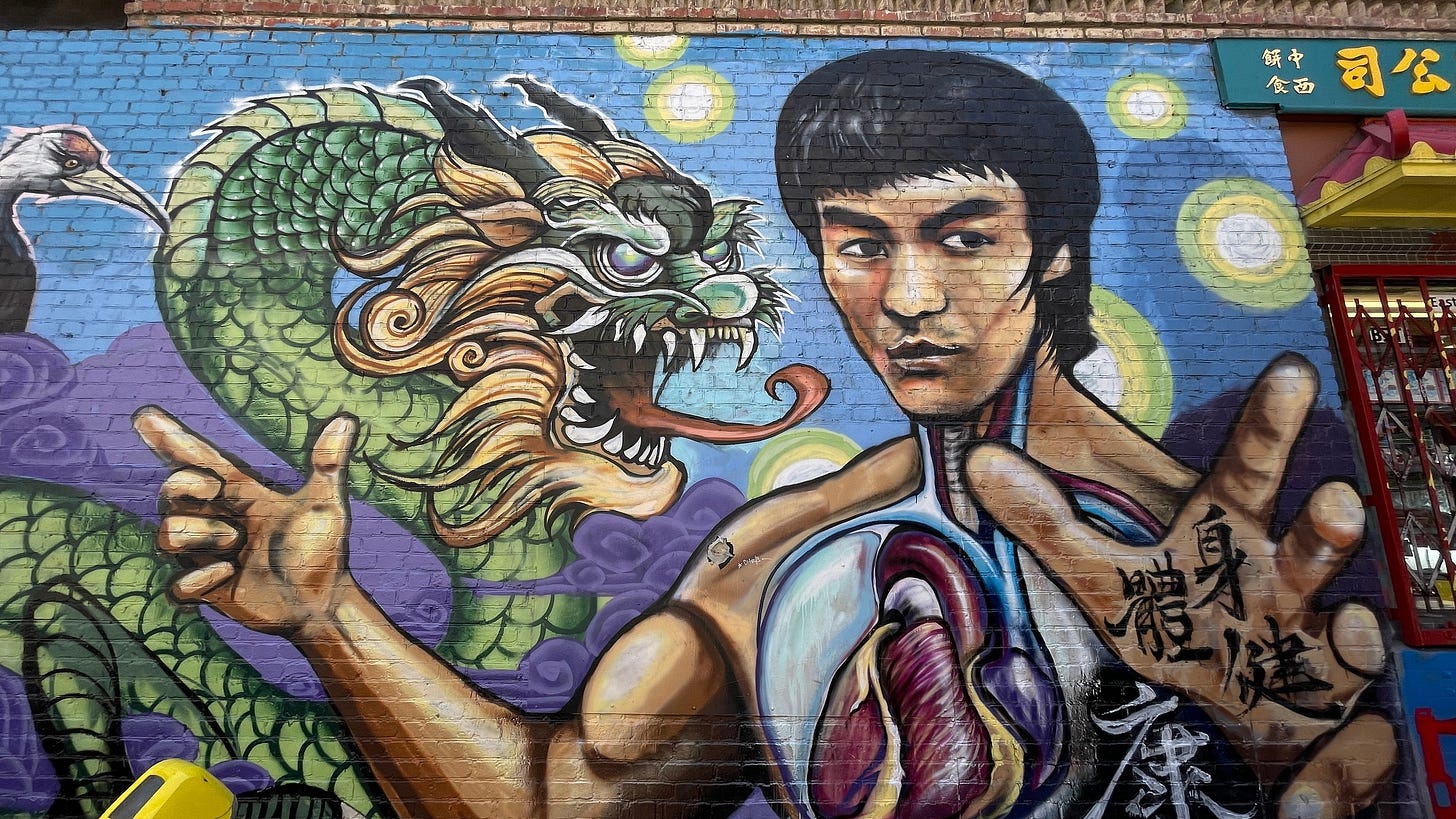
Interesting story Ruth and interesting to learn what ingrdients are in a fortune cookie too.
I have been there, back in the early 70's .. Possibly late 60's. Enjoyed watching them be made, yes, still warm. We would buy multiple bags of the flat ones. Taste the same, but back then (long time ago), they were fifty cents per lunch bag (I think it was a pound). Great purchase. Great cookies.